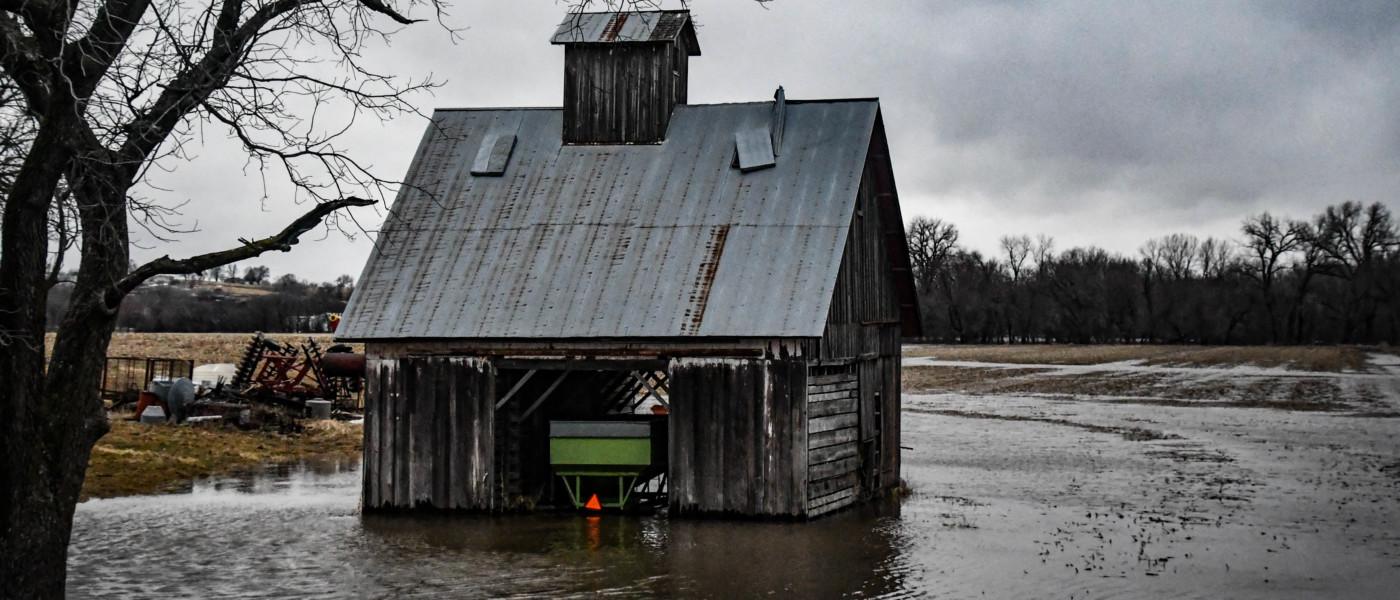The bomb cyclone that struck the Midwest last month created a wake of devastation across the region. Record rainfall, flooding and wind damage has left fields saturated, drowned livestock, infrastructure washed away and stores of harvested crops ruined. We’re hearing from farmers and ranchers who wonder how they’ll plant crops this year, at a time when they’re already facing financial, legal and emotional stress due to multi-year declines in farm income and unfair farm and trade policies.
The Flood’s Destruction
Here are the facts:
- Hundreds of thousands of acres of farmland have been impacted and billions of dollars in damage has already been accounted for.
- According to the United States Department of Agriculture, the floodwaters claimed up to one million calves. Many farmers won’t be able to claim these losses for insurance because the calves hadn’t even been documented as born yet.
- Critical farm and transportation infrastructure, like equipment, fencing and even roads and bridges, has been damaged beyond repair or is impassable.
- The waterlogged fields, some eroded or filled with sediment and debris brought in by the flood, may be unsuitable for planting this spring, with many farmers worried that they won’t be able to raise a crop in 2020.
- Farmers who stored their 2018 harvests in grain bins, hoping for a better price when the markets bounced back from the tariff wars, saw these bins burst, leaving the contents destroyed and potentially uninsurable. In some cases, farmers may face three seasons of lost crops due to this flood.
What Farm Aid Is Doing
In response, Farm Aid activated the Family Farm Disaster Fund to send immediate relief to farmers and to help them navigate their options on the long road to disaster recovery. The outpouring of support since we activated the Family Farm Disaster Fund has been heartening. In just two weeks we’ve received responses from over one thousand people from towns and cities across the country. In addition to contributing their hard-earned dollars to this effort, many people have included notes of encouragement and support for affected family farmers and ranchers. This is a reminder that we all need to help keep our family farmers and ranchers on the land, so they may continue to grow the good food and fiber we all depend on.
As of April 4, the Farm Aid community, with the wonderful help of generous members of the Sierra Club, has raised $82,000 for the Family Farm Disaster Fund. This week, we delivered our first checks to our partners in the Midwest to get the relief funds into the hands of farm families, and to provide them information and resources to support their recovery. Our immediate response is focused on reaching farmers and ranchers in Nebraska, Iowa, South Dakota, Wisconsin and Missouri, as we closely monitor surrounding states where snow pack is beginning to melt. The local and state-based groups who are tirelessly assisting farmers in understanding recovery options and long-term mitigation from tragic disasters like this, include:
Interchurch Ministries of Nebraska
Nebraska Commission on Indian Affairs
Support the Family Farm Disaster Fund
Though our fundraising efforts have been successful, farmers and ranchers are not in the clear. The need is great and recovery from a tragic disaster like this will take months, if not years. The generosity of folks like you can make a difference in the lives of affected farmers and ranchers. If you’ve already donated, thank you. If you haven’t donated yet, there’s still time to provide immediate assistance to farmers and ranchers who are struggling now more than ever. Please give a gift to our Family Farm Disaster Fund today.




